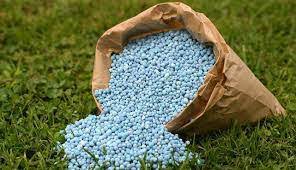The prevalence of phony and illegal agrochemicals on the Ghanaian market is a source of worry to stakeholders in the agricultural sector, with CropLife Ghana warning that between 25 to 35 percent of imports into the country are fake or banned.
According to the Organisation for Economic Co-operation and Development (OECD): “Global revenues associated with the trade of illegal pesticides are estimated at US$6-10billion”.
This makes the trade in illegal pesticides one of the most significant organised crime businesses in the world. Egypt, West Africa, and Tanzania are said to be the hotspots of these fake agrochemicals where 40 percent of products (seeds, fertilisers, and pesticides) are reported to be fake.
Speaking to The Business and Financial Times (B&FT) on the sidelines of a one-day training on anti-counterfeiting of agrochemical inputs and law enforcement strategies, the president of CropLife Ghana, Peter Ampofo, said using counterfeit and adulterated agrochemical products on crops pose great danger to the country’s ability to be food sufficient at a time the world is reeling under Russia-Ukraine war.
“If we don’t mitigate the situation, we are going to run a risk of food insecurity, and that will be very dire to the food safety of Ghana. From the estimates …between 25 to 35 percent of the total imports of agrochemicals are illegal or counterfeits. This is very significant. If you are having close to 40 percent imports being illegal or counterfeit, then we are in a very serious situation,” Mr. Ampofo warned.
Director-General of CropLife Africa Middle East, Dr. Samira Amellal, said these illicit products pose serious harm to farmers, crops, and the environment as their contents are unknown, untested and unregulated.
“The negative impacts of counterfeit pesticides are many. For farmers, counterfeits can lead to loss of revenues due to decreases in crop yields or severe damage to crops. In low-income countries, this can worsen poverty and threaten food security for already vulnerable communities,” she added.
To curb this menace in Ghana, CropLife Ghana, in collaboration with CropLife Africa Middle East, seeks to adopt an all-inclusive stakeholder approach in the fight against counterfeiting of crop protection products, hence, the overwhelming need to bring all key industry players to a common ground to develop a sustainable strategy to combat the illegal trade of pesticides in Ghana.
Eric Bentsil Quaye, Ag. Director, Plant Protection and Regulatory Services Directorate (PPRSD), expressed hope that the training would engender sustainable and judicious use of pesticides and fertilisers to adequately provide for the crop nutrition and protection needs of farmers across the country.
“The PPRSD recognises the critical role CropLife Ghana plays in coordinating product stewardship efforts of CropLife member companies for the purposes of quality assurance along product lines. This critical role contributes immensely to the development and promotion of the pesticides and fertiliser value chains within Ghana’s agricultural landscape.
“The stakeholder sensitisations, awareness creations, and capacity-building activities undertaken by CropLife over the years are some of the commendable interventions that keep driving sustainability management of pesticides and fertilisers among stakeholders. It is important to note that the activities of CropLife Ghana complement the enforcement and compliance drives of the regulators of the pesticides and fertiliser industries, i.e. PPRSD and EPA,” he stated








